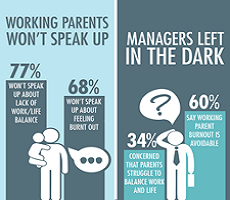November 9, 2015
Non-death of the office + Property owners lag behind + New issue of Work&Place 0
 In this week’s newsletter; Philip Ross says the main driver of the growing convergence of HR, IT and FM roles will be the availability of data to make informed decisions and Mark Eltringham gives a number of reason why office has an enduring appeal. In news; HR guru Cary Cooper warns about the deleterious effects of email on productivity and wellbeing, a third of home workers fear they’ll get fat, commercial property owners are not keeping up with tenant’s needs and the launch of a new study to develop a prototype UK scheme that mirror’s Australia’s ‘design for performance’. You can also download the new issue of Work&Place and access our first Insight Briefing, produced in partnership with Connection, which looks at agile working in the public sector. Visit our new events page, follow us on Twitter and join our LinkedIn Group to discuss these and other stories
In this week’s newsletter; Philip Ross says the main driver of the growing convergence of HR, IT and FM roles will be the availability of data to make informed decisions and Mark Eltringham gives a number of reason why office has an enduring appeal. In news; HR guru Cary Cooper warns about the deleterious effects of email on productivity and wellbeing, a third of home workers fear they’ll get fat, commercial property owners are not keeping up with tenant’s needs and the launch of a new study to develop a prototype UK scheme that mirror’s Australia’s ‘design for performance’. You can also download the new issue of Work&Place and access our first Insight Briefing, produced in partnership with Connection, which looks at agile working in the public sector. Visit our new events page, follow us on Twitter and join our LinkedIn Group to discuss these and other stories


































October 22, 2015
Seven ways to make your office work for different workstyles 0
by Brittney Herrera • Comment, Flexible working, Wellbeing, Workplace design
(more…)